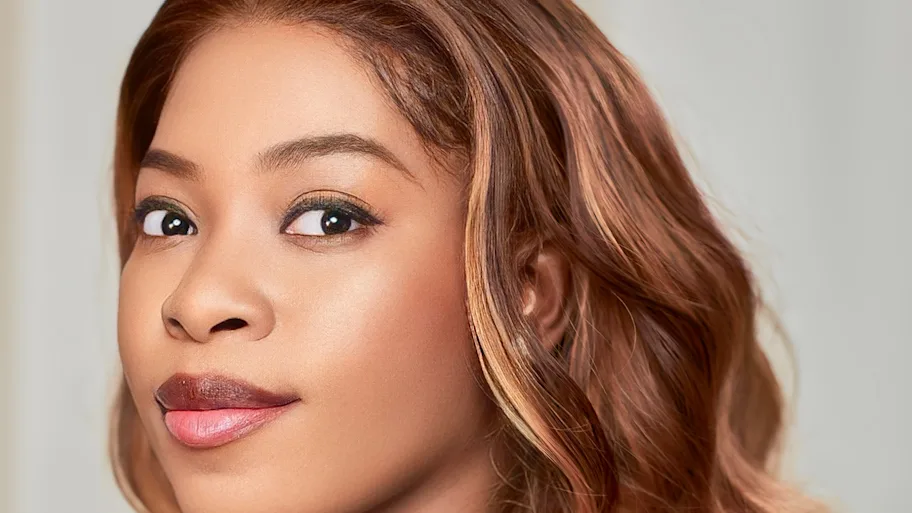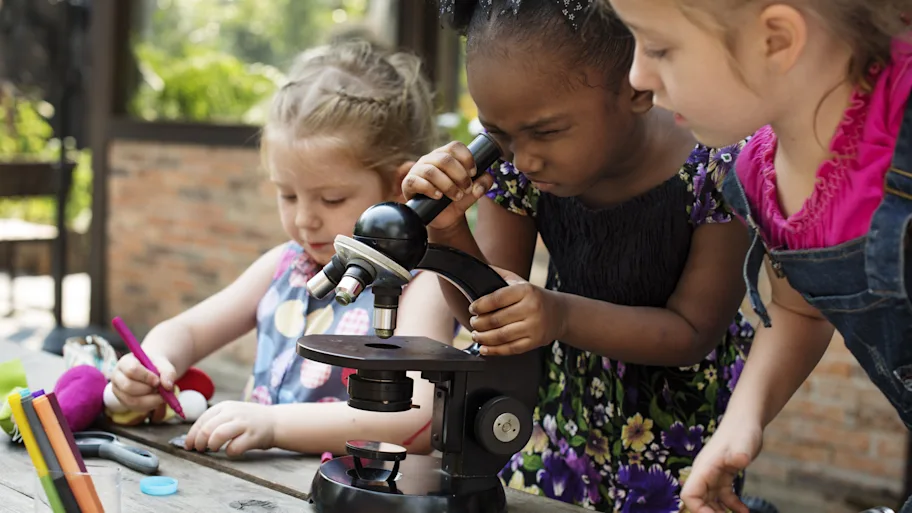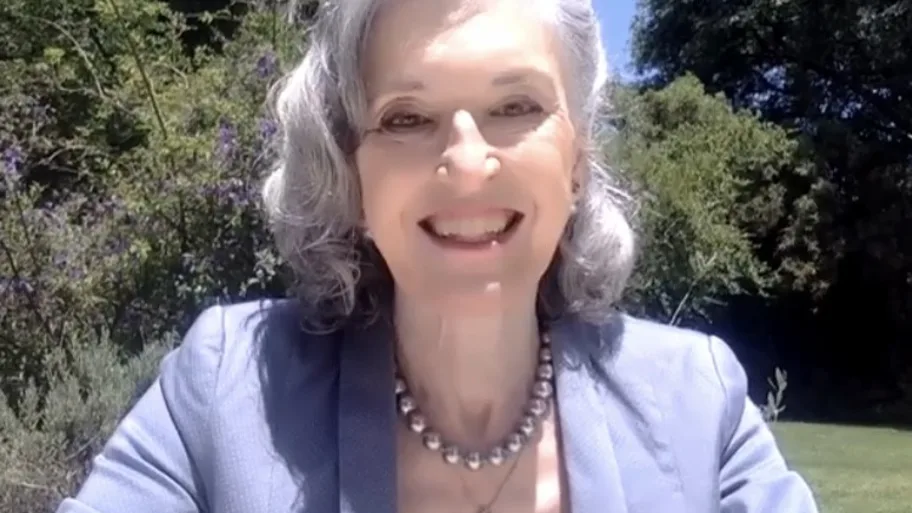
- Science news
- Frontiers news
- Gabby Ahmadia - Cutting the strings to parachute science
Gabby Ahmadia - Cutting the strings to parachute science
Author: Thimedi Hetti
Dr Gabby Ahmadia is vice president of Area-Based Conservation for the Oceans program at WWF-US, where she oversees science teams working together in priority regions around the globe, from the Pacific to Indian Ocean. We talk about the importance of strong international collaboration and addressing power dynamics to overcome the pervasive practice of parachute science, while also tackling issues of being a woman in science.

Dr Gabby Ahmadia is no stranger to multicultural upbringing, having grown up in Hawai’i to a Lebanese father and American mother. She credits this upbringing to her eventual interest in working internationally, “I loved working in new cultural settings with a diversity of people, that’s what I was accustomed to growing up because Hawai’i is a mix of people from everywhere.”
Her childhood in Hawai’i also contributed to her love of the oceans and subsequent career path working in ocean conservation. “Growing up in Hawai’i, we were so connected to the ocean, it was a part of you. My parents got us into snorkeling early, which I loved. I also got to take part in field trips during elementary school, where we would look at tide pools and find and identity all the sea creatures.”
Dr Ahmadia went on to study zoology at university, followed by marine science in graduate school, setting her on the path to where she is now. It wasn’t always smooth sailing, however, as she describes not just a lack of women role models in the field, but also a lack of support, like when a respected male professor discouraged her from pursuing climate change and coral reef science. “He basically called me a ‘tree-hugger,’ saying it’s not a real science. I obviously didn’t listen to him, but I don’t remember having any amazing role models that were female and diverse. What I think is changing is that now we’re having these conversations, but there weren't conversations like this when I was an undergrad.”
Speaking about her own career path, Dr Ahmadia describes her first experiences of international research, working in the Pacific, mainly Indonesia, before joining WWF, where she now oversees all area-based oceans work. Her work involves strengthening priorities on the ground in key regions worldwide, whether through natural or social sciences, to make better informed decisions and processes. “Having good international collaborations is a skillset, it doesn’t just happen. We think often about how we address power dynamics when working with our country offices, many of which are in the Global South.”
‘Parachute science’ can be loosely defined as researchers, predominantly from the Global North, dropping into countries and/or regions in the Global South, and holding most of the decision-making power around which research questions are being asked, where budgeting is allocated, etc. The practice of parachute science often fails to engage local researchers or knowledge in the appropriate ways. Dr Ahmadia acknowledges the role she once played in this, during her time in Indonesia. “When I first started working there, I was doing parachute science. We were dropping in, and we weren’t collaborating with local researchers and local knowledge. I felt uncomfortable and started to question it, but because we were taught to carry out science in a specific way, we just assumed that was the appropriate and correct way to do things.”
Despite this, Dr Ahmadia reflects on the things she’s learned since then. “I’ve been a parachute scientist, I will admit that, but I try hard not to let that happen anymore with myself or with anybody who works with me. Through working in Indonesia, I learned how to better engage local knowledge and local research. For example, if someone doesn't know how to write a traditional academic article, let’s figure out other ways to collect information. Because, as locals, they are in a much better position to understand the nuances of our outputs than we are. We’ve certainly made a lot of mistakes in the past, but by being self-reflective and continuing to challenge and learn how to improve these processes, we can have much more effective, impactful collaborations.
“Working at WWF also gave me a new lens because we had a different way of working. With WWF, there was already a strong network on the ground, which meant it was easier to tap into the local knowledge base. It showed me that there are better ways to do this.”
In 2021, Dr Ahmadia published an article in Frontiers in Marine Science, titled “Limited Progress in Improving Gender and Geographic Representation in Coral Reef Science”, exploring gender and geographic representation in authorship related to coral reef science over the span of 15 years. The study reminds us of the importance of intersectionality when discussing issues relating to diversity. “Often, the root causes to these issues are similar – if you’re just tackling one part of the problem, you’re not actually addressing the whole issue. When we recognize that we have more diversity across dimensions, this can lead to greater outcomes.”
While the findings of the article recognized that diversity trends did improve over the years, progress was still slow, indicating that systemic changes to research approaches and funding structures are necessary to build representation. “I do think trends are shifting, but as for whether it’s shifting as fast as it should be, I don’t think so. For example, I find it’s difficult to get a diverse pool of candidates for a position, particularly when it comes to recruiting women into more senior positions. Now that I’m a mom, I also see how society is not intrinsically set up for women to thrive.”
Solutions to other issues of representation, like parachute science, need to be multi-faceted and must come from all levels, whether it’s the individual or institution, publisher or funding body, they all have a part to play. “When submitting an article, if the research has been carried out in another country, ask yourself if you’ve engaged local researchers, and if not, why? From a journal’s point of view, if you come across parachute science, be prepared to ask these questions, and adopt more transparency during the peer-review process. Research institutions can do more to teach ethics around international research and collaborations. And lastly, there are ways funders can improve their own processes.
“We had a funder recently that gave us a year to do a co-design process in collaboration with one of our partner countries. Through funding, we can pay to engage local researchers and stakeholders to help form both research questions and conservation strategy and approaches. And it is true co-design, which reduces the potential for power dynamics.”
The answer, therefore, isn’t in the exclusion of the Global North entirely, but in appropriate and equitable collaboration. “Sometimes the role of Global North researchers can be facilitators of knowledge-sharing. Local researchers won’t always have access to the same level of global networks that we might have. It’s about asking the right questions: what does the Global North have to offer if they’re dropping down into these countries? And how do we address the power dynamics, so these research questions and conservation strategies are co-designed appropriately?”
Focusing more on her own path of being a woman in science, I wanted to know what experiences Dr Ahmadia has had throughout her career, both negative and positive. She describes the shocking case of a professor who engaged in inappropriate relations with female students in her lab. A professor who, to this day, is still actively teaching and has never had to face any real repercussions for his actions. Dr Ahmadia, who was never targeted herself, was one of the few people to report this and realized the value of standing her ground, even when others didn’t believe her and her professor actively discriminated against her by both refusing to review her thesis and making the path to her PhD much more challenging by not writing any letters of support.
“What was unfortunate was that many of the great female scientists in my master's program stopped pursuing their studies because it was such a horrible experience for all of us. But I feel like the more I talk about supervisors abusing their power, the more common I realize it is, not just for women, but men, too. Having that experience early in my career has always made me a strong advocate for women in science and holding my ground.” Her PhD advisor was also a crucial player in not only helping her graduate, but standing in her corner as an advocate, demonstrating problems like this can only be solved by action and support from both sides.
What’s positive to see, however, is that attitudes are changing now. “Highschoolers and undergraduate students are amazing! They are so much more aware of societal issues we face than I ever was. Social media can be bad at times, but this is its power - asking societal questions.”
When asking Dr Ahmadia about her proudest moments as a woman in science, she reflects on the 2021 Frontiers in Marine Science article. “I wrote it during COVID, I had a young baby, and I didn’t feel like an expert, so it was a hard article to write. But I was able to bring a lot of people together to start this important conversation. The article eventually gained a lot more traction than I expected, and it is the one that I felt most proud of because it was something I was passionate about. It even led to me doing a few invited seminars at universities, which I was surprised about!
“And then being able to be in a leadership position as a woman, while being my authentic self, has been rewarding. That’s a testament to some of the shifts in culture. Being my true self as a woman, not feeling like I had to conform and still being able to advance.”
We ended our conversation with Dr Ahmadia's advice to others who are starting their scientific journeys. “Try to find a good mentor who you can talk through some of these issues with. For me, it was my first boss at WWF who helped elevate me and give me confidence. If you don’t have that in your boss, find someone who’s a little further into their career who you can have these conversations with. I have since found other mentors and networks who have continued to support me on my journey (including Sangeeta Mangubhai – interviewed in an earlier edition of this series). When you start questioning decisions or navigating complexity in your work environment, having someone in your corner is a game changer.”
Frontiers is a signatory of the United Nations Publishers COMPACT. This interview has been published in support of the nine planetary boundaries.






